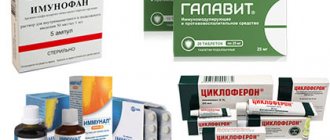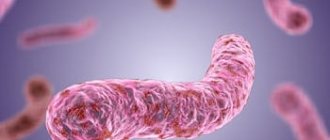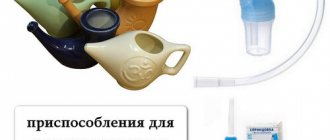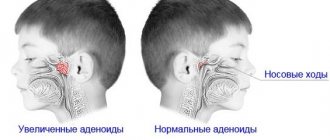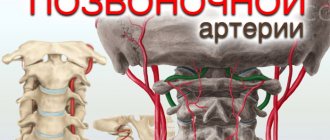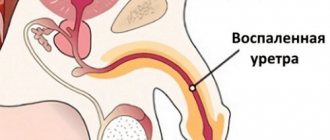When do you need antibiotics for diarrhea?
Diarrhea can lead to a lot of unpleasant consequences, although it is not itself the root cause of a person’s pathological condition. Diarrhea is a consequence of impaired functioning of the body and is not always associated with a bacterial pathogen. Antibiotics are justified when dangerous symptoms of pathological processes are observed, including:
- Bloody discharge during defecation.
- Frequent vomiting.
- High temperature, febrile condition.
- Going to the toilet more than 10 times a day.
- Loose stools last longer than two weeks.
Such symptoms are considered unsafe and require specialist consultation. The etiology of the pathological process can be different; an independent trip to the pharmacy is not enough.
Diarrhea is a symptom, the cause lies deeper. The pathological condition indicates a disorder of the digestive system, damage by pathogenic microorganisms or improper functioning of the intestines. Antibiotics are often prescribed for diarrhea of unknown etiology. However, only the attending physician can prescribe antibiotic therapy.
Other options
When acute diarrhea suddenly occurs, “What to treat?” - the patient’s very first question. In this case, the drug “Smecta” is the main assistant. This diarrhea remedy has other trade names, including:
- "Neosmectin".
- "Dioctite."
- "Diosmectite."
Sometimes it happens that the patient really does not like the taste of the drug “Smecta”. In this case, it is possible to replace it. Currently, there are many similar enterosorbents. The ideal option is the drug "Enterosgel".
The active ingredient in its composition is polymethylsiloxane polyhydrate. This drug can be used at any age. There are also no contraindications for pregnant women. This medicine can be taken in the same way as the drug "Smecta".
Another alternative option is Polysorb MP. In this case, it is unacceptable that the course of treatment exceeds two days. Only a doctor can prescribe this drug to children and pregnant women.
We are talking about the drug "Enterol". It contains special fungi called Saccharomyces boulardii. Accordingly, the drug belongs to the group of probiotics. These are medicines that contain live microorganisms.
We are talking about fungi and bacteria. They help restore natural microflora. However, the biological properties of this medicine are unique. Thus, the drug can be used in the complex treatment of any diarrhea. The drug "Enterol" has a direct antimicrobial effect on the following organisms:
- Yeast fungi (belonging to the genus Candida).
- Bacteria of the intestinal group: Klebsiella, Escherichia, Shigella, Salmonella, Yersinia.
- Protozoa (giardia, amoeba).
The drug helps suppress the development and reproduction of many pathogenic bacteria. However, it does not affect beneficial microorganisms in the intestines. The drug has antiviral activity, immunomodulatory, trophic, and antitoxic effects.
Diarrhea is a symptom that accompanies dozens of diseases. To quickly get rid of painful diarrhea, you need to know exactly why it appeared. Below we will name the main reasons.
- Poisoning from stale food. In this case, toxins enter the intestines, and the body seeks to remove them through loose stools and vomiting. Treatment of diarrhea with antibiotics in adults in this case is not advisable. Taking sorbents will provide much more benefit. The most famous option is activated carbon or Smecta.
- Viral infections. There are a lot of them: these are enteroviruses, rotaviruses and adenoviruses. Hepatitis also sometimes causes diarrhea. At the same time, antibiotics are completely useless; viruses are immune to them.
- Helminths can also cause diarrhea. In this case, it is the result of intoxication with waste products of parasites.
Reasons for using drugs
When diarrhea is caused by mild poisoning from expired products, and the number of trips to the toilet does not exceed 3-4 times with characteristic loose stools, a person will be able to cope with the problem on his own. The use of sorbents and the consumption of large amounts of liquid are sufficient to restore the water balance in the body. Antibiotics are sometimes needed for diarrhea in children and adults. Antibacterial therapy is used in the following cases:
- for signs of dysentery caused by Shigella infection. The cause is considered to be dirty hands, unwashed vegetables and fruits. Toxins produced by microbes poison the body, affecting the colon;
- salmonellosis. The salmonella bacterium is transmitted through household contact. Contaminated water or poor personal hygiene can become the root cause of infection;
- Typhoid fever is caused by bacilli. Can affect the intestinal microflora and disrupt absorption;
- Escherichiosis. Microorganisms are present in the human intestinal microflora and are completely natural; when a pathogenic bacillus enters, a disease develops;
- cholera. Gastrointestinal disease is accompanied by vomiting, diarrhea and disruption of the body. Cholera is life-threatening and requires treatment with broad-spectrum antibiotics.
Microorganisms of intestinal infection can be transmitted through household means. To avoid infecting others, contact your doctor if you experience the following symptoms:
- Change in stool color. A greenish or black tint, foam or mucous discharge is a clear sign of the presence of an infectious pathogen.
- Prolonged body weakness and fatigue. The body spends resources to restore the normal environment in the intestines, the patient feels weakness in the legs and malaise.
- Frequent pain in the abdominal area. The pain syndrome is of a twisting nature, sometimes sharp pain appears.
- Alternating diarrhea and constipation indicates impaired intestinal metabolism.
These alarming signs indicate the presence of pathogens in the intestines.
Signs of a bacterial infection
According to statistics, most people experience diarrhea as a result of a bacterial infection. It can enter the body with contaminated water, unwashed food, or as a result of failure to comply with basic hygiene.
The doctor will prescribe an antibiotic if the patient exhibits the following symptoms:
- copious discharge;
- loose stools with green speckles or green mucus;
- a lot of mucus is produced;
- there is bleeding.
Bacterial diarrhea is also often accompanied by vomiting, increased body temperature, and a painful urge to defecate (tenesmus)
If you notice that bloody diarrhea has begun, you should urgently seek medical help. This symptom is very alarming; it may indicate the development of a tumor in the intestines, hemorrhoids, or Crohn's disease.
Rules for treating diarrhea with antibacterial drugs
For diarrhea in adults, various medications are used. You should not go to the pharmacy with a list of medications that you prescribed yourself. Only a doctor can prescribe antimicrobial medications. Treatment is not limited to the use of antimicrobial drugs only. Antibiotics are combined with antidiarrheal medications, such as Loperamide. To restore fluid balance - Regidron and Revit. Due to the specific taste, some cannot drink them; it is allowed to independently prepare a solution at the rate of 1 teaspoon of salt per liter of boiled, cooled water.
The use of antibiotic therapy will be more productive if, before prescribing, the doctor sends the patient for laboratory tests to identify the cause of diarrhea. Simple tests in the form of a blood test, coprogram and culture for bacteria are sufficient. The latter laboratory procedure gives the most accurate result, allowing the pathogen to be placed in a favorable environment, then sensitivity to antibiotics can be determined. Thanks to tank sowing, a person can count on a speedy recovery.
The first manifestations of diarrhea are not a reason to take antibacterial agents. In some cases, they are useless and will not give the patient anything other than disrupted intestinal microflora. A course of antibiotic therapy is advisable if the bacterial nature of the disease is identified. For intestinal poisoning, drugs are not prescribed. The action of this group of drugs is aimed at destroying microorganisms, but it is not localized, and beneficial organisms suffer.
Antibiotic treatment involves several basic rules:
- You cannot start a course of antibiotic therapy on your own.
- It is forbidden to increase the dose prescribed by the doctor without prescription.
- The medications should be taken after meals, this will help avoid attacks of nausea.
- Drink plenty of water.
- Do not interrupt the course without indications.
Compliance with the above rules is important; this will help you approach the treatment of the disease productively and avoid complications. You need to be careful about the consistency of the diarrhea. Liquid stool mixed with blood indicates a dangerous disease.
Drug therapy
There are main groups of drugs for treating stool disorders and restoring microflora:
- Prebiotics.
These are enzyme preparations that contain nutritional elements necessary for the growth and reproduction of beneficial bacteria; they are used to treat diarrhea after taking antibiotics, when the effect of the antibacterial drug has already ended.
The drugs are: Oligosaccharides, Sorbitol, Sucrose, valine, Arginine and others.
- Probiotics.
Products that contain ready-made living bacteria colonize the digestive tract: Linex, Enterol, Hilak Forte, Acipol, Normobakt and others.
They are produced in a wide variety of forms: tablets, capsules, powders, drops. The use of capsule probiotics is justified; the capsule component, when passing through the gastrointestinal tract, protects the active substance and beneficial bacteria from the aggressive effects of hydrochloric acid in the stomach.
Under the action of intestinal enzymes, the capsule dissolves, and beneficial bacteria populate the environment unchanged. A true probiotic that can stop diarrhea during and after taking antibiotics is Linex, it is indicated from the first day of taking the drugs.
All other remedies should be used after completion of the course of treatment:
- Metabiotics.
Combined preparations that contain a probiotic and a prebiotic: Normobact, Bifiform.
- Sorbents.
Substances that bind toxins and foreign substances, removing them from the intestinal lumen, the most effective sorbents include: Activated carbon, Smecta, Enterosgel, Polysorb, Filtrum.
In order to replenish the supply of fluid lost with loose stools, they resort to rehydration, prescribing oral saline solutions: Regidron, Trisol, Polysorb, the patient must take at least 2 liters of fluid per day.
Contraindications to the use of drugs
Sometimes antibiotics are not helpful for diarrhea. This class of drugs is used for bacterial infections; in other cases, antibiotics will do harm. Antibiotic therapy is not needed if diarrhea is caused by:
- Viral infections. The symptoms of such pathogens are similar to bacterial ones, but antibiotics will not help. They will only destroy the lactobacilli necessary for the intestines; they will not bring any benefit. Rehydration therapy is necessary to treat infectious forms of diarrhea.
- Poisoning. Intoxication of the body is caused by toxins. Sorbents that attract toxic substances like a magnet will help remove them.
Antibiotics are prescribed when the benefit outweighs the risk of possible side effects. Drugs are contraindicated:
- for allergic reactions;
- individual intolerance;
- in late pregnancy.
Diarrheal syndrome is life-threatening. Risks dehydration and impaired digestive function. You should not put off going to the doctor if there are signs of intoxication in the body.
The article was approved by the editors
Features of application
To treat diarrhea in adults effectively, you must follow the instructions. The drugs "Gastrolit" and "Regidron" are sold in pharmacies in the form of sachets. Their contents must be diluted with water.
The drug "Gastrolit" requires 200 ml, and the drug "Regidron" - 1 liter. It is recommended to drink frequently and in small sips. It is better to take these diarrhea remedies chilled.
The fact is that warm liquids can make vomiting worse. Hospitalization is necessarily required if the latter does not stop. Otherwise, vomiting will lead to large fluid losses.
What to do if a patient develops food poisoning, which is accompanied by vomiting or nausea? In this case, the first step is to perform gastric lavage. A one percent soda solution or warm water will do.
You can also use a solution of potassium permanganate. In case of food poisoning with vomiting, diarrhea, the symptoms of which are not the most pleasant, can be very severe. In this case, after gastric lavage the patient will feel much better.
After this, it is recommended to take enterosorbent. For an adult, you will need 2 sachets of Smecta. Further administration - 1 package every eight hours. The course can last up to five days.
It is necessary to adhere to the time interval. The fact is that this drug has adsorbing properties. That is, it can contribute to the disruption of the absorption of other substances from the intestines.
Therefore, it is not recommended to take Smecta for more than a week. This is due to increased excretion of certain nutrients and vitamins. In the future, their shortage may begin.
This drug is produced in the form of capsules (250 mg). There is also a powder form that is used to prepare a suspension. The drug is intended for the treatment of adults, as well as children who have already reached the age of three.
Take 1-2 capsules in the mornings and evenings. It is necessary to use medications one hour before meals. The course of treatment can last up to ten days. The use of the drug by pregnant women without special instructions is not recommended.
Enterol has virtually no side effects. In some cases, minor discomfort in the stomach area, as well as minor allergies, may occur. Manufacturers do not recommend using the drug for those who use an indwelling catheter in a vein.
This is due to the risk of colonization by fungi. This way they can penetrate into the blood. This problem does not only apply to this drug. Many dangerous microbes can settle in venous catheters. For example, Pseudomonas aeruginosa, staphylococcus and others.
Main advantages
This drug has a unique structure. Thanks to this, it gently lines the mucous membrane of the intestines and stomach. In this way, cells can recover from damage received. The barrier function of the gastrointestinal mucosa is enhanced.
We are talking about a cytoprotective effect. In normal doses, the drug is not absorbed and does not change intestinal motility. The drug "Smecta" tastes quite pleasant. In addition, the product has very few contraindications.
In particular, this applies to intestinal obstruction and hypersensitivity to components. This drug can be used to treat diarrhea in adults, as well as in children. It is allowed to be taken by pregnant and nursing mothers.



